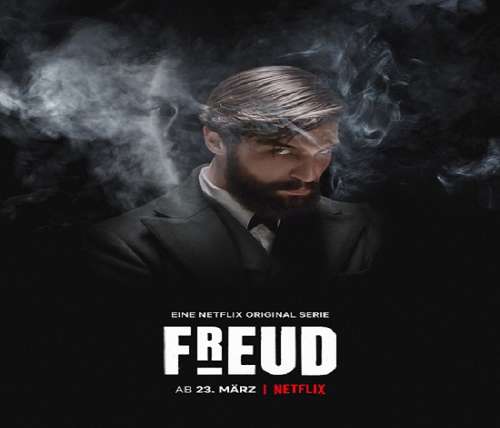Freud – The Netflix Series
Overview
Being a psychiatrist and a psychotherapist, I thought it would be unwise on my part to ignore afilm on Sigmund Freud. I didn’t know what to expect from the film was it for psychiatrists, psychoanalysts or lay public.
Was it about educating people or just to provide entertainment.
I am not the one who is interested in crime dramas, psychological thrillers or murder mysteries and have never been able to watch such programmes for more than a few minutes. Strangely on this occasion I was unable to stop myself from watching the last five episodes in one go without interruption. What attracted me to the episodes was not a fascinating intermix of occultism, psychiatric knowledge, Freuds early life, historical accounts of politics in the late 19th century Vienna, etc but my belief whilst watching that all this truly happened, and I was fascinated by all that. It was only afterwards I realised that it was not a true depiction of Freud’s life.
Even whilst watching, I was a bit unsure about its authenticity as they were talking about paranormal phenomena happening in reality and Freud was a party to the scenes.
After having such experiences Freud could not have completely banished the ideas of paranormal and the occult, which he did all his life.
This film has depicted Sigmund Freud as someone who changed the world, which is a fact as he introduced a whole new world of the unconscious mind to people and his theories had an enormous impact on almost every aspect of life i.e. therapy, medicine, literature, fine arts, theatre, cinema, politics, business, advertising, etc. People like Virginia Woolf, Alfred Hitchcock, Woody Allen and Salvador Dali were influenced enormously by Freud. It’s a different matter that more than half of his theories were not judged to be correct on further scrutiny, However, at another level it seems unfair to him.
This film has depicted Freud as a cocaine addict who offers cocaine to a patient of his, has sex with her, makes false claims of hypnosis by demonstrating its effects on his housemaid who he had trained to say certain rehearsed words in front of an audience.
The series also shows Freud using hypnosis to solve crimes, helping a patient abscond from the mental asylum and visiting the Vienna palace with an inspector to save Franz Joseph, the Emperor of Austria from assassins. The film also depicts bizarre scenes of hypnosis where an occultist is able to hypnotise Freud against his wishes.
There is enough in the film to entertain if one were to forget that Freud was a real human being and to stop expecting to gain some real insights about therapy or psychoanalysis. However, there are some catchy phrases and some pearls of wisdom scattered around but not very often. The following are some examples:
- Whoever carries light must go into darkness.
- The heart is a cage; and happiness a bird.
- Freud’s wife tells him, “you overestimate the power of genitals, especially those of yours.”
- What we really desire in the depths of our inner being, we will become for better or for worse.
- One can maintain that what a person has become was, in actuality, their deepest desire.
This film was unfair to Freud because all his life he guarded his personal life with utmost secrecy and didn’t allow anyone to write his biography, and also he didn’t allow any film maker to make films on using psychoanalysis for crime and detective work, although many film makers had approached him.
The series has enough of juicy stuff; occultism, communicating with the dead, murder mystery, palace intrigues, cannibalism, Egyptian mummies, weird hypnosis, secret societies with their strange rituals, using human skull and menstrual blood for sorcery, political revolutionaries, etc.
There are certain things which are true, such as he took cocaine and in my opinion it may have helped him develop the theory of unconscious and also understanding the dark side of human mind. It may also be true that he had sex with a patient (named Fleur in the movie although the real name was different), as after that lapse in his professional conduct he strongly opposed working with transference (patients romantic feelings towards the therapist) and wanted it to be interpreted and analysed as soon as possible. Whereas Jung saw transference as something positive and helpful in taking the therapy further and felt that it can be worked on at a later stage in therapy.
There are certain things about the series that seem unrealistic e.g. Freud getting involved in solving murder mysteries and the palace politics, encountering real paranormal and occultism, helping a patient escape from asylum, Austrian noblemen killing each other under the influence of hypnosis/a devil etc.
There are certain things about the series I would be interested in knowing the truth about
The Emperor Franz Joseph orders Freud to destroy his first book – “The Powers of Hypnosis,” with a threat that otherwise his family will be in danger, and Freud burns his book.
Freud confronting his professor the way it is depicted in the film and getting sacked from his job, and getting before reinstated by Royal orders after he burnt his book.
All in all, it’s not for therapists to gain a deeper understanding of the mind or of the therapy process; it is for general public, and a psychological thriller.



